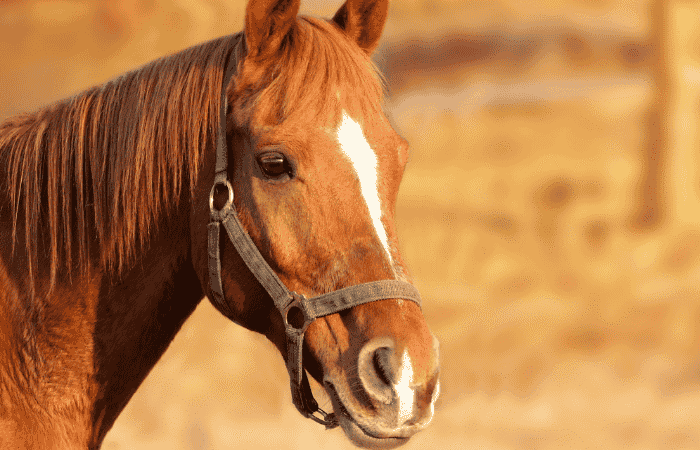The Role of Nutrition in Bone Strength and Injury Prevention

In equine performance, bone strength plays an important role in performance, movement, and long-term soundness. Genetics, training, and environment are all factors in bone health, but nutrition perhaps is the most controllable factor for structural soundness and for susceptibility to injury. Understanding how diet supports bone development and resilience can make a significant difference for horse owners and trainers aiming to protect their equine partners from common skeletal issues.
Why Bone Health Matters in Horses
A horse’s skeletal system is not just a framework for movement it is also a dynamic structure that continuously remodels and adapts to workload. If a horse is undernourished, it might lead to the formation of less strong bones, which will be susceptible to stress through exercise, galloping, or even farm work. Chronic bone fatigue in equine athletes can precipitate serious disease, such as a horse condylar fracture, a condition commonly associated with racing horses and other performance animals subjected to repeated impact loads. Proper nutrition is essential in ensuring horse owners provide their horses with the nutritional foundation required to maintain bones at their peak density and avoid the possibility of damage from strain.
See also: Tech Giants: Who’s Leading the Charge in Innovation?
Essential Nutrients for Bone Strength
A few nutrients directly help in the maintenance of bone structure and function:
Phosphorus and Calcium Balance
Phosphorus is required for skeletal health, while calcium is required for the mineralization of bones. The minerals should also be in a proper ratio—usually the ratio of almost 2:1 (calcium:phosphorus)—to allow for effective absorption and metabolism. Without balance, despite proper intake, bones become soft.
Vitamin D
Vitamin D facilitates the absorption of calcium from the gastrointestinal tract. Vitamin D is obtained by horses primarily by exposure to sunlight, although supplementation may be required in horses with limited turnout time or in winter when sunlight exposure is limited.
Magnesium
Magnesium helps bone mineralization and metabolism of calcium. Inadequate magnesium intake may impair skeletal function and muscle function.
Protein and Amino Acids
Proteins like the amino acid lysine, are precursors to collagen—a structural bone protein. Protein intake must be sufficient since sufficient intake will allow even mineral-fortified intakes to allow optimum bone acquisition.
Trace Minerals
Zinc, copper, and manganese play supportive roles in bone metabolism and connective tissue health. These trace minerals are often overlooked but are essential for balanced nutrition.
Preventing Injuries through Nutritional Planning
Bone injuries in horses often result from a combination of stress, training intensity, and underlying weaknesses in skeletal structure. While no diet can completely eliminate the risk, certain feeding strategies can support resilience:
- Supply steady, balanced levels of nutrients year-round, and not just at competition time.
- Avoid rapid growth in young horses by avoiding excessive calorie intake that leads to developmental orthopedic disorders.
- Align energy intake in the diet with workload to avoid excessive body weight that causes extra stress to joints and bones.
- Use forage as the base diet, sustaining natural mineral intake and promoting digestive health.
By prioritizing these factors first, owners can assist in the development of a healthier bone structure that is more likely to support training stresses.
The Connection between Joint Support and Bone Health
Bone and joint health are not the same. Bones provide the structure, but joints absorb the shock and allow for smooth movement. Both are necessary in working horses if they are to be maintained sound in the long term.
A good equine joint supplement may include added targeted nutrient ingredients certain amino acids, omega fatty acids, and a couple of trace minerals that complement a balanced diet in maintaining integrity of connective tissue. Supplements will not guarantee prevention of injury, but they can be used as part of a comprehensive program for horses racing in high-demand sports.
Monitoring and Adjusting the Diet
Periodic assessment of nutrition, ideally done with the help of an equine nutritionist or veterinarian, allows for adjustment as the workload, age, and environment of a horse change. Blood tests, body condition scoring, and monitoring performance may give a hint as to whether or not the present diet is optimizing skeletal function.
Hoof quality, muscle tone, and recovery rate also need to be tracked by owners because secondarily, they indicate the ability of the diet for the structural integrity of the horse.
Final thoughts
It takes more than delivering a mineral block a considered, well-structured nutrition plan that is harmonized with training, management, and disease control. Through purposeful attention to early development of the proper balance of minerals, vitamins, protein, and trace minerals, owners can help maintain conditions that are optimal to bone integrity and possibly diminish the risk of high-stress trauma such as a horse condylar fracture.
For horses engaged in intense training or performance, combining a balanced diet with targeted nutritional support may be beneficial. Products such as OptiWize Collagen Plus can be included as part of a broader feeding plan to provide key building blocks for connective tissue health, contributing to an overall strategy that supports long-term bone and joint function.




